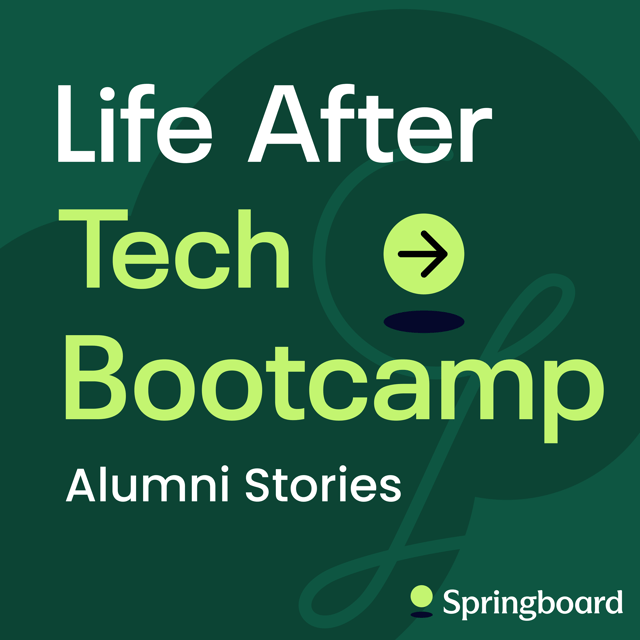

Today's guest is Rachel, a Senior Experience Designer at Havas CX. As a former fashion designer, her interest in sustainability led her to a career in UX design. Read about that here. Rachel discusses how she tailored her job search and portfolio to secure the job she desired. She also explores the differences between securing her first UX job and her second one.
If you have any questions for me or the guests, or if you'd like to be a guest yourself, feel free to email me at alumnipodcast@springboard.com.
Interested in finally taking the plunge by starting your career in tech? How does $1500 off a Springboard Career Track Course sound?
Use code EPEHT at checkout to save $1500.
Learn more here.
Edited by Dave Bianco
Cover art by Jerry Qu

Today's guest is Rachel, a Senior Experience Designer at Havas CX. As a former fashion designer, her interest in sustainability led her to a career in UX design. Read about that here. Rachel discusses how she tailored her job search and portfolio to secure the job she desired. She also explores the differences between securing her first UX job and her second one.
If you have any questions for me or the guests, or if you'd like to be a guest yourself, feel free to email me at alumnipodcast@springboard.com.
Interested in finally taking the plunge by starting your career in tech? How does $1500 off a Springboard Career Track Course sound?
Use code EPEHT at checkout to save $1500.
Learn more here.
Edited by Dave Bianco
Cover art by Jerry Qu

